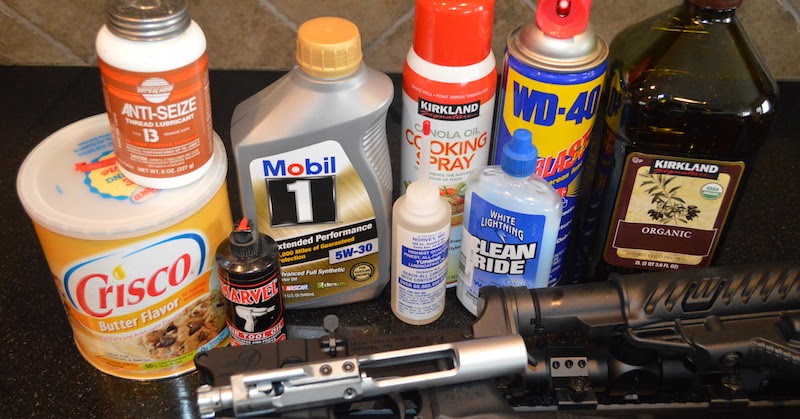
Gun oil is a crucial component in firearm maintenance, providing protection against corrosion and aiding in the smooth operation of the firearm’s moving parts. Recognizing the importance of gun oil, the article explores various substitutes for traditional gun oil, discussing their properties and effectiveness. The substitutes range from household items to specialized lubricants, each with its own set of advantages and limitations.
The article emphasizes that while alternative oils can be used, they may not offer the same level of protection or performance as specialized gun oils. Factors like viscosity, temperature range, and additives are important considerations when selecting an alternative oil. High viscosity oils are generally better for colder climates, as they are less likely to freeze, while lower viscosity oils are suitable for warmer conditions. The article also touches on the potential downsides of using alternative oils, such as reduced effectiveness in certain temperatures or the possibility of damaging the firearm.
In conclusion, the article suggests that while there are numerous substitutes for gun oil available, it’s essential to carefully consider their properties and how they align with the specific needs of the firearm and the environment in which it will be used. Regular cleaning and maintenance are also highlighted as vital practices to prevent issues like build-up and jamming, regardless of the type of oil used.
Can I use non-gun oil to lubricate my gun?
Gun enthusiasts often ask if they can use alternative gun oils instead of gun oil specifically designed for firearms?
The answer is that, while it is possible to do so, you may not get the same level of protection or performance as with a gun oil specifically formulated for firearms.
Alternative gun oils may not have the right properties to protect your firearm from corrosion and rust, and they may not perform as well in cold weather.
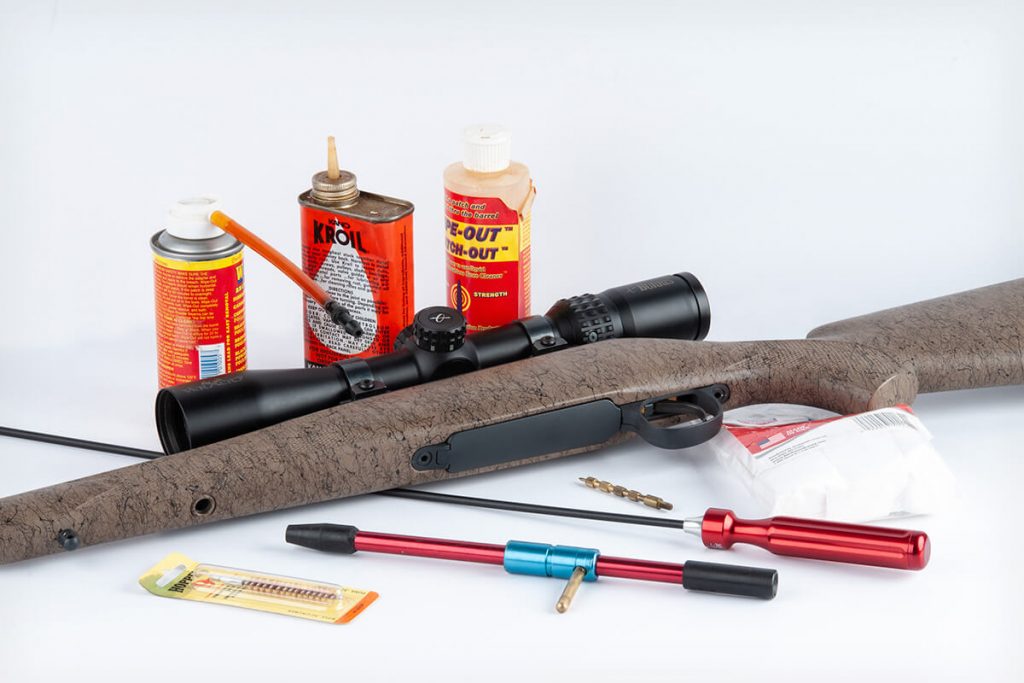
If you choose to use a non-gun oil to lubricate your gun, be sure to test it first in a low-stress situation to make sure it works well.
There are a few non-gun oils that can be used as gun lubricants, but it’s important to read the label carefully to make sure the product is safe for firearms.
There are a number of good gun oil substitutes on the market, so it’s best to do your research before settling on one.
What should you consider when choosing an alternative gun oil?
- You need to consider the properties of the substitutes.
- For what purpose are you using the gun oil?
- How will it affect the performance of my gun?
Let’s look at each of these factors so you can make an informed decision about which gun oil substitute is right for you and your gun.
Viscosity
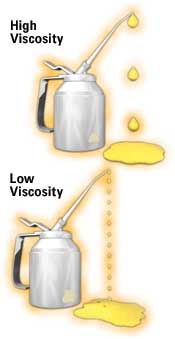
Viscosity is the most important property of gun oil.
It is a measure of the oil’s ability to flow and how thick it is.
The higher the viscosity, the thicker the oil and the slower it will flow.
The lower the viscosity, the thinner the oil and the faster it will flow.
You need to choose an alternative gun oil with a viscosity that is similar to gun oil specifically designed for firearms.
If you are unsure about what viscosity to choose, ask a gunsmith or another gun enthusiast for advice.
Thicker oils are better for cold weather because they do not flow as easily and are less likely to freeze.
Thinner oils are better for hot weather because they flow more easily and do not gum up as easily.
Temperature
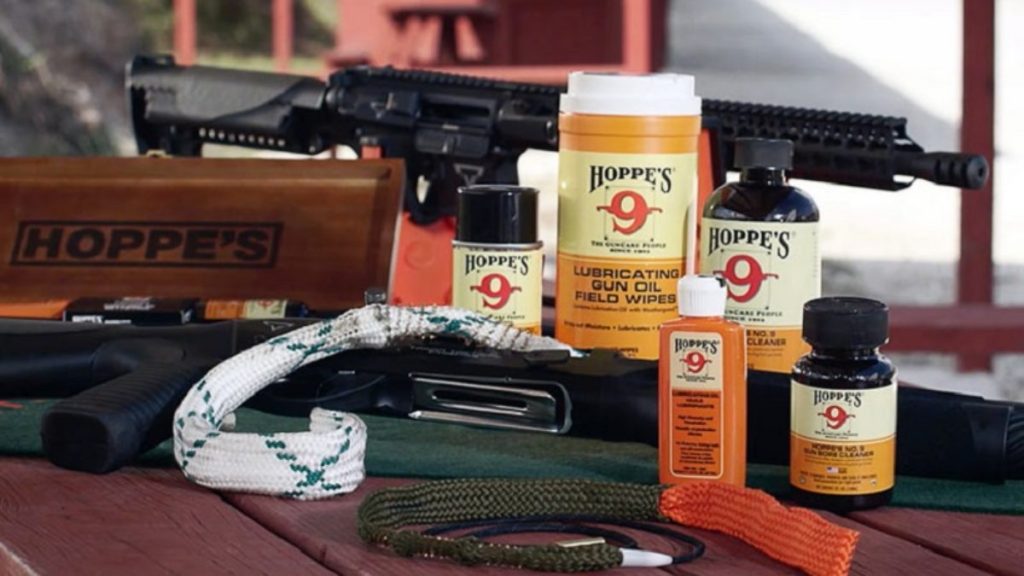
The gun oil you choose should also not have a high flash point.
The flash point is the temperature at which the oil ignites.
Most gun oils have a flash point between 100 and 200 degrees Fahrenheit.
The flash point is important because you don’t want your gun oil to ignite during use.
Synthetic gun oils often have a lower pour point than petroleum-based gun oils.
You need an oil with a high flash point so it won’t ignite easily.
The pour point is the temperature at which the oil freezes.
You need an oil with a low pour point so it won’t freeze in cold weather.
Synthetic gun oils often have a lower pour point than petroleum-based gun oils.
This is because they do not freeze as easily.
When choosing an oil, you should also consider the temperature range in which you will be using the gun.
Thicker oils are better suited for cold weather.
Additives
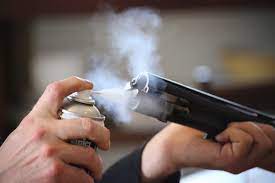
Some gun oils contain additives that improve the performance of the oil.
Additives can help to reduce wear, prevent corrosion, and make the oil flow more easily.
The most common additive in gun oils is a rust inhibitor.
Rust inhibitors help to protect your gun from rust and corrosion.
They are especially important if you live in a humid climate or if you are going to be storing your gun for an extended period of time.
Gun oils with rust inhibitors often have a yellowish color.
What purpose is gun oil used for?
- Gun oils are used as a protective agent against rust and corrosion and to lubricate the moving parts of firearms.
- They help keep firearms in working order by reducing friction between moving parts.
- Gun oils also protect firearms from external influences that can cause damage over time.
- Using gun oil also helps extend the life of a firearm.
How will gun oil substitute affect the performance of my firearm?

Rust and corrosion can cause serious damage to your firearm, and lubrication helps ensure that the moving parts of your firearm work smoothly.
Using a gun oil substitute can affect the performance of your firearm in one or more of the following ways:
- A substitute may not have the same degree of rust and corrosion protection as an oil specifically designed for firearms.
- The substitute may not work as well in cold weather
- A substitute can contaminate your firearm and make it difficult to clean it.
- Using a gun oil substitute will not affect the performance of your firearm.
- However, you may find that your firearm is not as protected from rust and corrosion as it once was.
- You may also find that the lubrication is not as effective, and that the gun runs more stiffly.
- If you use a gun oil substitute that is less viscous than traditional gun oils, it may run off the gun more easily.
- Also, if you use a less viscous gun oil, you may need to clean the gun more frequently.
Alternative gun oils and their properties:
There are a number of gun oils on the market, each with its own set of properties.
Some common gun oil substitutes include:
1. WD-40
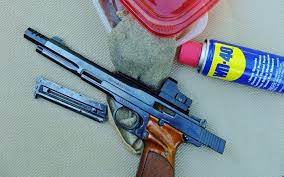
WD-40 is a popular choice for gun owners.
Pros:
- inexpensive
- easy to find
Cons:
- not very viscous
- has a low flash point
- may not provide the best protection for your gun
2. Mineral oil

Pros:
- inexpensive
- has a high viscosity
Cons:
- has a low flash point, so it may not be the best choice for gun owners who live in warm climates
– Gun grease: Gun grease is a popular choice for gun owners because it has a high viscosity
3. Froglube CLP:

Pros:
- High viscosity
- High flash point
- Biodegradable
- Non-toxic
Cons:
- More expensive than other gun oils on the market
Froglube CLP is a popular substitute for gun oil.
Froglube CLP that is made from a combination of plant oils and beeswax.
4. Slip 2000 EWL

Pros:
- High viscosity
- High flash point
- Non-toxic
Cons:
- More expensive than other gun oils on the market
- Low flash point
- Can build up and cause gun jams
Slip 2000 EWL is a gun oil that is made from a combination of synthetic oils and petroleum.
5. BreakFree CLP

Pros:
- Inexpensive
- High flash point
Cons:
- Low viscosity
- Toxic
- Flammable
- Breakdown over time and can cause gun jams
BreakFree CLP is a gun oil that is made from a petroleum base.
6. Otis Technologies Dry Lube
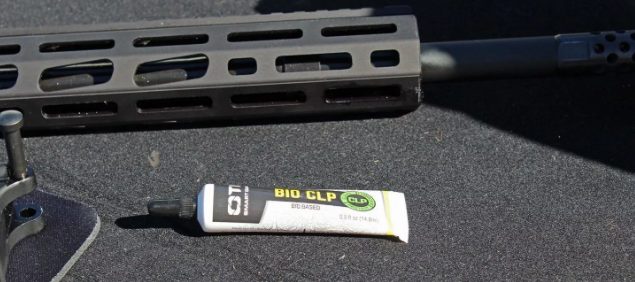
Pros:
- Inexpensive
- High viscosity
- Non-toxic
Cons:
- Low flash point
- Flammable
- Can build up and cause gun jams
Otis Technologies Dry Lube is a gun oil that is made from a synthetic base.
7. AmazonBasics 5W-30 engine oil
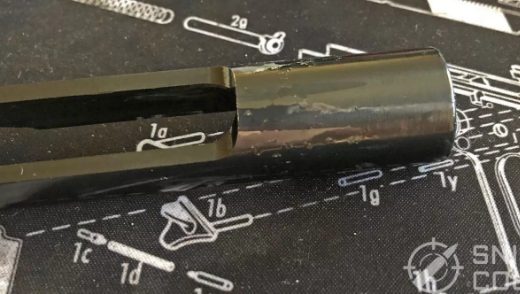
Pros:
- Inexpensive
- High viscosity
- Non-toxic
Cons:
- Low flash point
- Flammable
AmazonBasics is a gun oil that is made from a synthetic base.
8. Hoppe’s No. 9 Lubricating Gun Cleaner Oil

Pros:
- Inexpensive
- Non-toxic
Cons:
- Low flash point
- Flammable
Hoppe’s No.9 is a good gun oil substitute. Not be the best choice for gun owners who live in warm climates.
9. Lucas Original and Extreme Duty gun oils

Pros:
- good choice for gun owners who live in warm climates
- High viscosity
- Non-toxic
Cons:
- Can build up and cause gun jams
10. Three-in-one oil

Pros:
- Inexpensive
- Non-toxic
Cons:
- Low flash point
- Flammable
- Can build up and cause gun jams
11. Shooter’s Choice gun oil

Pros:
- Non-toxic
Cons:
- Low flash point
- Flammable
12. Silicone Gun Oil

Pros:
- Non-toxic
- High viscosity
Cons:
- Low flash point
- Flammable
13. Cleanzoil gun oil
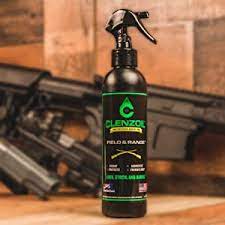
Pros:
- Non-toxic
- High viscosity
Cons:
- Low flash point
- Flammable
- Can build up and cause gun jams
FAQs
1. Can wd40 be used as a gun oil?
WD-40 is a popular choice among gun owners because it is inexpensive and easy to find. However, WD-40 is not very viscous and has a low flash point, so it may not provide the best protection for your weapon.
2. Can I use motor oil as gun oil?
Motor oils are not recommended for use as gun oils because they can damage gun barrels. Additionally, they have a high flash point and are flammable.
3. What is the best gun cleaner and lubricant?
There is no one perfect gun cleaner and lubricant for all types of guns and all climates. Gun owners should choose a gun cleaner and lubricant based on their individual needs and preferences.
4. Can guns be lubricated with petroleum jelly?
Petroleum jelly can be used to lubricate guns, but it is not the best choice because it can build up and cause gun jams.
Conclusion

Gun oil substitutes can be a great way to protect your firearms.
However, it is important to choose the right gun oil substitute for your needs and climate. You should also be sure to clean your gun regularly to prevent build-up and gun jams.
In conclusion, there are many different gun oils on the market, each with its own set of properties.
When choosing a gun oil substitute, you need to consider the properties of the substitutes.
Gun oil substitutes can be a great way to protect guns from rust and corrosion, as well as to lubricate moving parts of guns.
Just be sure to consider the properties of substitutes before making a decision.
Thanks for reading! I hope it was helpful.
